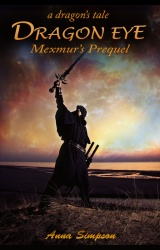 This post was written for the Author Toolbox Blog Hop where we share our new discoveries on the craft of writing, editing, querying, marketing, publishing, and blogging tips. Posted every third Wednesday of the month. For rules and sign-up click here.
This post was written for the Author Toolbox Blog Hop where we share our new discoveries on the craft of writing, editing, querying, marketing, publishing, and blogging tips. Posted every third Wednesday of the month. For rules and sign-up click here.
~~~oOo~~~
“You’ve gotta dance like there’s nobody watching,
Love like you’ll never be hurt,
Sing like there’s nobody listening,
And live like it’s heaven on earth.”
~William W Purkey
Some Writers add:
Write like nobody will read it.
“The only way you can write the truth is to assume that what you set down will never be read. Not by any other person, and not even by yourself at some later date. Otherwise you begin excusing yourself. You must see the writing as emerging like a long scroll of ink from the index finger of your right hand; you must see your left hand erasing it.”
~Margaret Atwood from The Blind Assassin
To get better we have to let go, share our truths, then seek out feedback
And yet we do let people read our work. We start with ourselves as we rework the  prose and revise, revise, revise. Then on to our support team of critters and beta readers. Then there is submitting.
prose and revise, revise, revise. Then on to our support team of critters and beta readers. Then there is submitting.
Sometimes I wonder which is worse.
It’s no wonder as writers we feel fragile.
Feedback is huge
Yet the best advice I can offer any new writer is be sure to listen to your support team. Put the hurt feelings away and mope later. If you want your work out there, it’s got to be the best you can do. Let your beta readers point out flaws, perk new ideas and help you discover your blind spots.
Once you’ve done this a few times you’ll know your weaknesses. From there you can make lists for self editing, ask specific questions and dive in deeper for more self discoveries.
The trick to improving is being open to any and all feedback.
Use it or toss it
That doesn’t mean incorporating every suggestion into your work. It means considering each suggestion and asking if it will improve your project. Not all feedback will and your source of feedback already understands that only you know where the story needs to go.
In my case, I’m always surprised when someone finds a plot hole after I’ve fussed over my narration for hours. I’m blinded because I know the stuff that is not on the page. That’s the trap.
When reading for other writers
And here we go again with writing the truth.
To keep it from becoming an attack, I’m very specific about what I share. I call myself a reader and focus only on the words in front of me. If I don’t usually read the genre, then I focus away from that aspect, knowing another reader will offer feedback on genre. I zero in on structure, characters, dialogue, style, and immediate impressions. I strive for only one thing and that is to improve the work in front of me.
To be honest, I don’t see a fragile ego waiting for the ax to fall; I see a hard-working author striving for a bright and exciting  future.
future.










Great post! It is always interesting to see your work through someone else’s eyes, and I usually find in immensely helpful. Thanks for sharing. 🙂
Thanks so much. 🙂
Great advice! It’s so important to get feedback on our work, but we also need to realize that all feedback falls under the category of suggestions, not hard and fast changes. Knowing when you use feedback and when not to comes with time.
Some new writers believe they must incorporate all changes and they land up with a mess. I tend to go with the majority when unsure what to do. 🙂
Loved your wise info on this topic. Especially liked “To be honest, I don’t see a fragile ego waiting for the ax to fall; I see a hard-working author striving for a bright and exciting future.” Very hopeful and positive. I agree with Cheri–the critique is only a suggestion, not an absolute change. We have to keep our voice, but I agree with you, Anna, to note when many readers point out the same problem. Then it should be something the writer takes into account.
JQ Rose
If many agree there is a problem I sit up and take notice. 🙂
Great advice. Love this, “To be honest, I don’t see a fragile ego waiting for the ax to fall; I see a hard-working author striving for a bright and exciting future.”
Thanks, Juneta. 🙂
That is great advice–“Write like no one will read it”. Yep, That’s true.
I’d freeze without it. hehehe
Great post! I alays find wisdom in Margaret Atwood’s words. I find that offering critique as a beta reader can be as difficult as receiving it. I know the writer has poured her heart and soul into the work, so I stick with “this worked for me” and “this didn’t work for me.” I try to gently point out discrepancies in the plot, as I need this kind of feedback as well. And I always point out what I love about a piece. No matter how much work it needs, there is always a kernal of greatness to be nurtured.
That’s why I add my immediate reactions. Honest emotion–tear in the eye, snort, Wow! –seem to do the trick. 🙂
Mope about it later – yes! Great advice.
I always wonder when it will get easier. So far, moping lives in my back pocket. hehehe
Feedback is a struggle for many writers to give because we’re often worried about reactions.
You’re right that we simply need to focus on making the piece in front of us better. It’s difficult to accept that kind of help from others, but the more we give feedback, the better we’ll be at receiving it.
This is true for me as well. 🙂
I love that Margaret Atwood quote. That’s almost exactly what I tell myself as I write!
I also like your final line. I hadn’t articulated it, but that’s how I feel. I want to make your work better, and I don’t want to have to deal with fragile egos.
I think we are all fragile in some way. What we need to do is push it aside to meet our goals. 🙂
I’m getting ready for Camp NaNo, and I’m trying to fill in as many plot holes as possible before starting. 🙂
When someone asks me to read something for them, I ask what it is they want me to look for/focus on, do they want me to read as a reader or as a writer, etc.
It’s great if they specific questions that need answering. In the beginning I didn’t have any idea what I needed. I’m glad those days are over. hehehe
I love good, constructive feedback, because how can I fix things if I don’t know what’s wrong? It’s always a little smack to your ego, but then I take a deep breath, get on with the work, and in the end I’m grateful for the advice that made my story the best it could be.
We should be grateful. Each reader or critter took time out of their day to help. We need to remember that. Well said, Megan. 🙂
This is a great post. I particularly love the part about letting go. We can’t have a breakthrough unless we are willing to try something new
The scarier the better. 😉
I love your point about learning from feedback. If I get the same type of comments from different sources, it helps me to focus on those areas of weakness when I’m writing.
My point exactly. 😉
This is wonderful, Anna! Feedback is essential to writers to be sure that what’s in the writer’s head is actually on the page. This is where I mess up a lot. And choosing what to tell other writers about their writing is crucial. The reader needs to remember that it is the writing–the story–and NOT the writer herself you are critiquing. Thanks, Anna!
http://victoriamarielees.blogspot.com
We are sensitive enough about being judged when showing off our work. 🙂
Good insight. I agree if you critique outside your genre, focus on other areas. I, like most authors, welcome constructive criticism.
We all need it sometime. Feel free to call on me if you need a beta reader. 🙂
I’ll keep your offer in mind. Thanks.
Feedback really is important. We just have to learn how to take it…as well as give it. Some feedback can read rather harsh, so those who give it should take care if they have to give bad feedback. And writers need to realize the feedback is good, even if it’s bad. It’s there to help us, and we can take it or not. I still panic, though, when I get feedback. I just can’t help it.
I think we all do to a degree. That’s why I mentioned putting feelings in a back pocket. We all get hurt, but we can’t let it stop us from our goals. 🙂
Feedback is SO essential! I even like negative reviews sometimes, because if they’re genuine feedback rather than trolls (or people reading in the wrong genre) they can help me do better on the next book.
When it comes to reviews, I don’t think we can please everyone. As long as the review is honest, I can’t complain. 🙂
Terrific perspective — and definitely nudges me in the right direction of seeking feedback and thinking about what I receive. Appreciate the suggestions and the places where people get stuck in the story — and the digging in to adjust/fix/delete is not so lonely or purposeless….
It helps me see the work more clearly and I have so many doubts the longer I work on a project. Feedback encourages me to stick with it. 🙂
Yes, the feedback is so bracing and encouraging — and generally, the reader shares something positive that I never thought of before!
I just love that Atwood quote. Great insight. 🙂 With my last book, I told my editor, I don’t think there are any plot holes left, but I could be wrong. I was wrong. So wrong. 🙂
Famous last words. hehehe
One needs to choose their beta readers wisely. It’s very difficult for a lot of writers to refrain from critiquing something in the vein of “This is what I would have done.” Sometimes they can do more harm than good. I have a couple trusted ones if needed, but in general I prefer to use a professional editor who is not a writer.
That’s interesting. I’ve never consider that, but you have much more experience with writing that I do. Thanks for the insight. 🙂
You are a hard working woman and I think you give great feedback too. I like your quote and the addition at the top. Thank you 🙂
I try, but I have so much to learn. 🙂
Feedback can be such a delicate thing.
I often seek out a few preferred first readers, people that I know will be gentle.
Later I send it to other, sharper readers, but it’s nice to know at least a few people like it.
I also think there’s something to be said for starting a second project soon after the first, or having some small side projects going at the same time. Choosing not to work on a single project helps diversify the investment. Even if your main project is poorly received, you can comfort yourself with the fact that “others” are going well.
When I do receive constructive criticism, much like the story, I like to let it sit and age a little. Fresh and hot, it can be hard to separate out the “good” from the “well intentioned”, and often, by waiting a little while, we get more feedback from other sources, and start to see what really needs to be addressed.
I’m doing an experiment where I’m merging all my feedback into one document. I’ll be able to easily see where everyone agrees. It should be interesting. 🙂
“Then on to our support team of critters and beta readers.” I wish. Finding C’s & BR’s isn’t easy and to keep them is even harder IME.
I used to take all suggestions on board before I realised I lost so much of ‘voice’ and character. It does take experience and a good ear to know which advice to take and which to leave to one side. But I’m always grateful for any advice because it’s another take on my writing and story.
Great tips! 🙂
I destroyed a few works before I realized I’m the captain of the ship. hehehe
Yes! Feedback is definitely one of those invaluable things. It’s helped tighten my writing, despite me railing against it at first.
You and I both have a similar reaction. But it’s all good in the end. 🙂
Great point Anna. Feedback is so critical for writing. As writers we know so much that isn’t on the page and that extra knowledge can blind us to what is actually in the prose. Thanks for sharing. Like so many others commented your remark about not seeing a fragile ego but an author striving is brilliant.
Aren’t we all brilliant. 🙂
I don’t think I would have published a single book if it hadn’t been for my crit group’s feedback.
I hear that! 🙂
Thanks for sharing your personal insights about receiving and leaving feedback, Anna. Both are a toughie on the ego. I think I’d be OK receiving feedback and not being offended (I started sending my first draft chapters to my husband for a first reaction), but it can be tricky. As for the other way around, I’m OK giving constructive feedback, and try to hide disliking certain parts, especially when it is not my writing genre or a genre I wouldn’t normally read. It’s important to be honest, but to know what to say and what not. Not always easy…
Balance of good and not-so-good helps. 🙂
Pingback: Author Toolbox Blog Hop: A Year in Review – E.M.A. Timar
In the end, it’s your book. Just be smart enough to know whether it needs help or not.
So true. 🙂